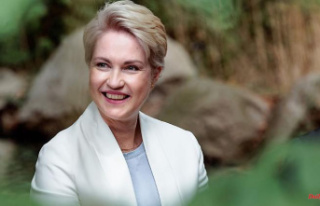The CDU in the Hamburg Parliament wants to cancel the testimony planned for mid-August by Chancellor Olaf Scholz (SPD) before the Parliamentary Committee of Inquiry (PUA) on the "Cum-Ex" scandal. "We will request that the Chancellor's hearing be unloaded on August 19," said the spokesman for the parliamentary group in the committee, Götz Wiese, on Friday. First of all, further documents from the Cologne public prosecutor's office would have to be viewed. The background are media reports about allegedly new findings of the investigators in connection with the tax treatment of the Hamburger Warburg Bank involved in the scandal.
It's about a WhatsApp chat that the Cologne public prosecutor's office came across, according to WDR research. In it, a Hamburg tax officer is said to have written to a colleague in 2016 - shortly after the tax authorities had decided against a tax reclaim of 47 million euros against the Warburg Bank - that her "diabolical plan" had worked.
"If chat messages now indicate that a 'diabolical plan' has been hatched among employees in the financial administration, then this can only be the beginning of further investigations," said Wiese. "At the center of the events are the management levels led by the then Finance Senator Peter Tschentscher and the then First Mayor Olaf Scholz." Scholz had to be confronted with the further investigation results "so that he can remember better," said Wiese.
At his first hearing before the committee in April last year, Scholz denied any political influence on the tax treatment of Warburg Bank. However, he could no longer remember the conversations he had with the bank's shareholders during the period in question as mayor of Hamburg. Tschentscher also rejected all allegations before the PUA as "completely unfounded".
"The PUA does not know the chat history quoted by WDR - we can therefore not say anything about the obvious assumption that other departments of the Hamburg tax authorities could have been involved in the matter," said the chairman of the left, Norbert Hackbusch. "However, we will receive documents from the Cologne public prosecutor's office in the next few days, which will probably give us more clarity."
The SPD also considers it necessary to examine the files from Cologne, said its chairman Milan Pein. At the same time, however, he warned: “A confiscated, private chat message has been made public, the background and circumstances of which are unknown and therefore cannot be evaluated at this point in time. We have already experienced that evidence from North Rhine-Westphalia has become public. ”Contents were presented in a shortened form.
What is meant are entries from the diaries of Warburg shareholder Christian Olearius, which also came from the Cologne investigation files. In it, Olearius described how he and the bank co-owner Max Warburg met Scholz in his office in the town hall in 2016 and 2017 and also talked about the tax case. At that time, Olearius was already being investigated on suspicion of serious tax evasion.
The publications shortly before the 2020 state elections finally led to the establishment of the Parliamentary Committee of Inquiry. He should clarify a possible influence of leading SPD politicians. Shortly after the 2016 meeting, the tax authorities decided, contrary to the original plan, to waive possible tax reclaims of 47 million euros and to let them run into the statute of limitations. A further 43 million euros were only claimed in 2017 after the Federal Ministry of Finance intervened shortly before the statute of limitations expired.
Warburg Bank later had to repay more than 176 million euros in unjustly refunded taxes due to a court order. However, she is still trying to take legal action against the tax assessments later amended by the tax office.
In "cum-ex" deals, financial players moved blocks of shares with ("cum") and without ("ex") dividend entitlement around the dividend record date in a complicated system and then had taxes refunded that were never paid. This caused damage to the state in the billions.












